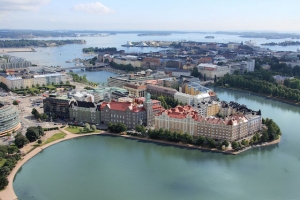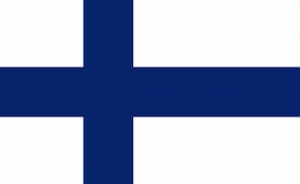Résultats de la recherche pour : Teemu Taira
Revue de presse, 23 mars 2023
Ramadan
« Le ramadan est le neuvième mois du calendrier lunaire arabe, déterminé localement en fonction de l’observation du premier croissant de la nouvelle lune, lors de la «nuit du doute». Le conseil des théologiens de l’Exécutif des musulmans de Belgique (EMB) s’est réuni mardi soir et a déterminé que le ramadan débutait ce jeudi. » - Début du ramadan ce jeudi pour les musulmans de Belgique (Le Soir avec Belga)
« Des menaces sur les réseaux sociaux ont contraint les organisateurs à changer leur fusil d'épaule. » - Annulé au Roma, l'iftar LGTBI aura lieu à l'Hilton d'Anvers : "L’amour sous toutes ses formes mérite le respect" (Jacques Hermans, La Libre Belgique)
« Le mois saint pour les musulmans, qui commence le 23 mars, relève autant de l’impératif religieux que d’un mode de socialisation apprécié des observants. » - Ramadan : entre « tradition familiale » et « grand moment collectif », une pratique aussi culturelle que cultuelle (Sarah Belouezzane, Le Monde)
Revue de presse, 14 janvier
Belgique
« Le Secrétaire d'Etat à l'Asile et à la Migration, Sammy Mahdi (CD&V) a retiré en octobre dernier le permis de séjour de Mohamed Toujgani, imam principal de la mosquée Al Khalil à Molenbeek, la plus grande mosquée de Belgique, indique VRT NWS ce jeudi » — L'imam Toujgani est interdit d'accès au territoire belge (Tom Guillaume, la Libre Belgique)
« Le secrétaire d'Etat à l'Asile et à la Migration, Sammy Mahdi (CD&V), a retiré le permis de séjour de Mohamed Toujgani, imam principal de la mosquée Al Khalil à Molenbeek, la plus grande de notre pays, en octobre dernier » — Retrait du permis de séjour pour l'imam de la plus grande mosquée de Belgique (Eric Steffens, Stef Meerbergen, Victor Van Driessche, VRT)
La non-religion dans la société post-moderne
Depuis une quinzaine d’année, le projet Eurel (Sociological and legal data on religions in Europe and beyond) s’attache à comparer le phénomène religieux parmi les différents pays européens, dans ses aspects juridiques et sociologiques surtout. Il réunit régulièrement son réseau de correspondants et organise, depuis peu, des conférences internationales ouvertes aux chercheurs autres que ceux affiliés à son réseau. Le dernier colloque d’Eurel s’est ainsi déroulé, les 26 et 27 septembre derniers, à Oslo, et portait sur le « formatage de la non-religion dans la société post-moderne », dans ses perspectives institutionnelles et légales. Il était co-organisé par Eurel et le projet Good Protestant, Bad Religion? Formatting Religion in Modern Society (GOBA) de l’Université d’Oslo.
Revue de presse, 3 juillet
Belgique
"Ce mercredi 4 juillet, la sortie de l’avortement du Code pénal sera débattu en Commission Justice de la Chambre. Alors que le Centre d’Action Laïque (CAL), la Fédération Wallonie-Bruxelles, ou encore la Ligue des Droits de l’Homme réclament cette dépénalisation totale, on peut se poser cette question: certains droits humains priment-ils sur d’autres?" — Certains droits humains (Christophe Herinckx, Cathobel)
Finland: recent trends and patterns in religion, secularism and atheism
According to Eurostat (2011), Finland is culturally, ethnically and religiously one of the most homogeneous countries in Europe. This is reflected in its religious landscape: although particularly because of Muslim immigrants and refugees, religious diversity has increased since the 1990’s, the Evangelical Lutheran Church of Finland remains the biggest religious denomination.
Finland
According to Eurostat (2011), Finland is culturally, ethnically and religiously one of the most homogeneous countries in Europe. This is reflected in its religious landscape: although particularly because of Muslim immigrants and refugees, religious diversity has increased since the 1990’s, the Evangelical Lutheran Church of Finland remains the biggest religious denomination. Nearly three quarters of the Finnish population is a member of the Lutheran Church. Other religious groups cover a bit less than 3 % altogether. The remaining part of the population – more than 20 % – is unaffiliated. Some are atheists or religiously indifferent, whereas there are also people who consider themselves religious or spiritual but are not members of any registered religious community. The most significant change is a decrease in membership of the dominant Church, partly because one can easily resign via a website and partly because the Church is considered conservative on issues relating to same-sex marriage. Membership has gone down from more than 90 % in 1980 to 88 % in 1990, 85 % in 2000, 78 % in 2010 and 73.7 % in 2014.











 MangoGem
MangoGem